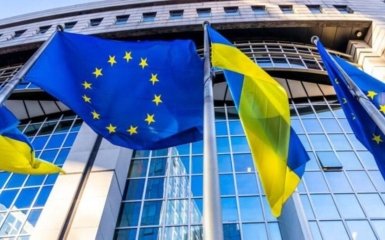The European Union is already working on the 14th package of sanctions. Still, the current bans have not yet prevented Russia from earning billions of dollars and continuing its illegal and brutal aggression against Ukraine. That is why the EU should act tougher and work not only on introducing new sanctions but also on strengthening the existing ones.
Points of attention
- PACE deputies call on the EU to strengthen sanctions against the Russian steel industry in order to stop illegal aggression against Ukraine.
- The Kremlin managed to continue importing Russian slabs to the EU despite restrictions that violated previous sanctions.
- It is important to completely stop the possibility of importing Russian metal products to the EU to weaken the Russian economy and reduce the threat to European security.
- EU sanctions against Russia are regularly updated, but the deputies emphasize the need for more effective and consistent measures regarding the metallurgical sector.
- The measures proposed by the deputies aim to ban the import of Russian metal products into the EU, which is an important step in curbing the Russian Federation's aggressive actions and protecting international security.
PACE deputies appealed to the EU regarding anti-Russian sanctions
The appeal to the EU High Representative for Foreign Affairs and Security Policy, Joseph Borrell, was submitted by deputies of Ukraine, Poland and Estonia.
There is a loophole that is actively used by the Kremlin regime — it consists in the fact that there are enterprises in the EU that belong to or are connected to Russia. The people who own them enjoy all the privileges of living in a democratic society, but at the same time they abuse the privileges to ensure the enrichment of the Kremlin regime.
For example, the signatories cite Novolypetsk Metallurgical Company (NLMC) and its ultimate owner, Vladimir Lisin. NLMC owns and operates steel plants in Denmark, Italy and Belgium. At the same time, NLMK is the largest producer of electrical steel in Russia: the company helps the Kremlin manufacture the Tor and Osa missile complexes, radar stations for the S-400 and intercontinental ballistic missiles.
The basis of the Russian economy is metallurgy, as well as the oil and gas production industry. The Kremlin makes billions by cynically undermining international trade and fair competition. No one in the world has so many available energy resources. This allows Russian companies to produce cheap products and actively engage in dumping on the market, causing losses to European and Asian competitors.
PACE MPs were reminded that the EU has already introduced sanctions against some metal products from the Russian Federation. However, through lies and blackmail, the Kremlin extended the quotas for Russian slabs for another four years—although they were about to expire in September 2024.
However, the 12th package of sanctions relaxed the previously introduced restrictions. It allowed the Russian Federation to import slabs in huge quantities until October 2028, and these relaxations were lobbied by NLMK and their partners/allies in the EU. Every ton of Russian metal products is the blood of Ukrainians. In 2024 alone, delaying the introduction of full-fledged restrictions will give Russia at least $2 billion. And they will turn into new missiles for bombing Ukraine, - emphasized the deputies.
They called on the EU to be more challenging: to introduce sanctions more consistently and to completely stop the possibility of importing Russian metal products into the EU. This is the only way to weaken the Russian economy and reach a turning point in the war, which threatens the security of all of Europe.
The letter to Borrell was signed by People's Deputy of Ukraine, Chairman of the Committee on Migration and Refugees of the PACE Oleksiy Honcharenko, Member of Parliament of Estonia, Head of the Estonian Delegation to the PACE Erik Cross, and Member of the Polish Sejm, Head of the Polish Delegation to the PACE Arkadiusz Mulyarczyk.
EU sanctions against Russia: what is known
In the 12th package, the European Union extended the quotas for Russian slabs for another four years. The total quota for the import of these products from October 2024 to September 2028 is set at 8.5 million tons, with a more detailed breakdown by period.
Preliminary sanctions on the import of slabs were introduced in October 2022, as part of the 8th package of sanctions.
Then, it was decided that it could last until the end of September 2024 within the limits of the established quotas, and imports should stop on October 1, 2024. However, the 12th package of sanctions relaxed the previously imposed restrictions.




